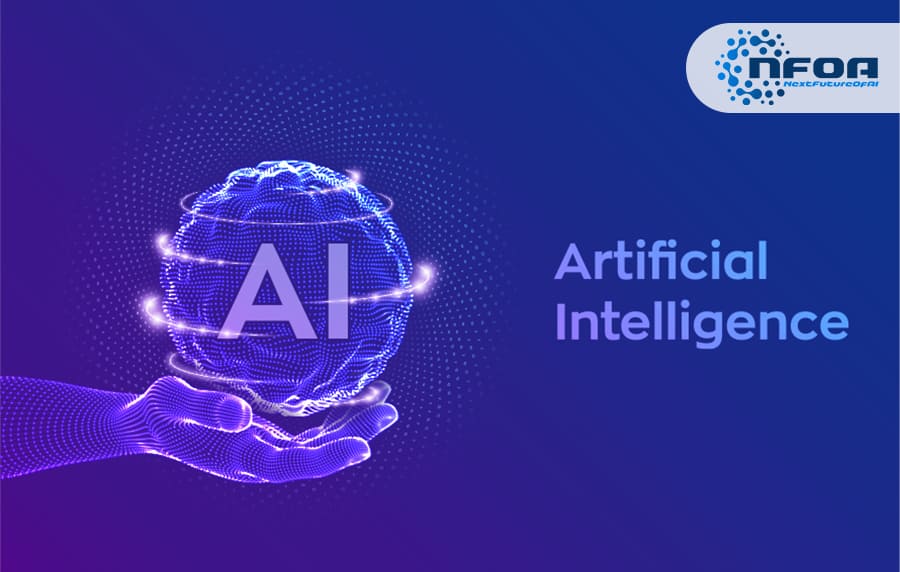In simple words, Artificial intelligence AI is a specific ability of computers or robots to do the tasks that humans usually do. AI is opening new directions to speed up human work.
With the help of AI, we can do multiple jobs within a very short time. This is a simple and brief definition of artificial intelligence.
But if you want to dive deep into the subject you have to start with the simple bookish definitions of AI.
What Is AI?
Artificial Intelligence (AI) directs to the field of computer science which focuses on creating a human-like intelligent machine. This intelligent machine is capable of performing various types of tasks that typically require human intelligence.
AI contains a wide range of techniques and algorithms. By creating logic these machines can exhibit intelligent behavior, learn from data, and adapt to new situations. As a result, these AI machines are reaching the decision-making position.
AI systems are particularly designed for analyzing and interpreting vast amounts of data, through recognizing patterns and solving problems. Even some of the machines are so intelligent they can partially simulate human thought processes.
Two Categories Of Artificial Intelligence
On the basis of the performances, we can distribute the artificial intelligence into two segments.
Narrow AI and Strong AI.
Narrow AI:
The narrow AI system is designed to perform a specific task or function with higher proficiency levels. Industrial robots, Apple Siri, and virtual assistant bots are the perfect examples of narrow or weak AI.
Strong AI:
Strong AI is designed to perform human-like works. They are designed with the cognitive abilities of the human brain. Unlike narrow AI, strong AI can give solutions autonomously and find the solutions all by themselves.
For building intelligent robots or industrial automatic instruments these programs are widely used.
What Are The Common Types Of Artificial Intelligence?
Artificial intelligence can be categorized into four types. The task-specific intelligent system can be used in a wide range. And also progressing to the sentient systems.
Here are the four basic types of artificial intelligence that are used in the industry and other fields.
1. Task-Specific Reactive Machines
These artificial intelligences don’t have any memory but they are task specific. There are many robotic hands that are designed to do the task by understanding the required move. But it can’t learn from its mistakes and can’t store anything in memory.
2. Limited Memory AI:
Limited memory AI systems have memories where they can store their past experiences and data. These machines can use their experiences to make any future decisions. A common example of these AI programs is self-driving cars.
3. Find The Theory Of Mind:
Theory of mind means psychology. These artificial intelligences have the social intelligence to understand emotions and other human-like emotions.
This type of AI can transform human intentions and also can predict behaviors. This system is much more intelligent. By using their intelligence they can become integral members of human teams.
4. AI Self-Awareness Program:
This artificial intelligence system has a sense of self. This program is much more conscious than the other three types of AI.
Machines with self-awareness can understand the present errors that disrupt the systems. And also can find their own solutions by reading the current state.
How Does Artificial Intelligence Work?
We all know artificial intelligence is the latest trendy technology. But unless you are not aware of the actual functional process of the AI you will not be able to understand the value of these technologies.
AI requires a specific foundation with specialized hardware and software for developing machine learning algorithms.
As algorithms require complex logic for more intelligent machines you will require more complex algorithms. Very few computer languages are capable of designing such complex algorithms.
AI systems work by ingesting a large amount of labeled training data. You can analyze all sorts of data for corrections and develop new patterns for rectifying the chatbot’s functions.
AI techniques can create much more realistic text, images, music, and other types of media.
Artificial intelligence focuses on the cognitive skills for developing more complex logic.
1. Data Learning
This data learning program focuses on acquiring the data and creating other rules. This learning process will help you turn the data into actionable information.
It will provide more computing devices and show you the right path to complete the specific task.
2. Reasoning:
This part of artificial programming focuses on choosing the right AI algorithm for reaching the right desired outcome. Usually, multiple algorithms are stacked in the program.
In this list which is going to be a suitable one? AI programs are well designed to understand the suitable program.
3. Self Corrections Options:
Artificial intelligence programs are designed to create a continuous process with fine-tuned algorithms. This will ensure you provide the most accurate results. It will ensure more authentic logical results.
4. Self-Correction Options:
These aspects of AI programs are designed for fine-tuning algorithms. These algorithms can give the assurances of the most accurate results delivery.
If they can’t find the solutions, these programs are also going to produce the nearest solution option.
Bottomline:
Artificial intelligence is important for any new generation of trendy technologies. As in modern systems, we require a vast production of items.
These productions are only possible when you are using AI. For staying in the competitive market AI technologies are increasing production rates along with perfect accuracy.
Lead generation fraud detentions and quality control everything is done by artificial intelligence. Hope you get the ideas about the functioning process and the definitions of artificial intelligence.
Read Also
What Are The Types Of Artificial Intelligence?

